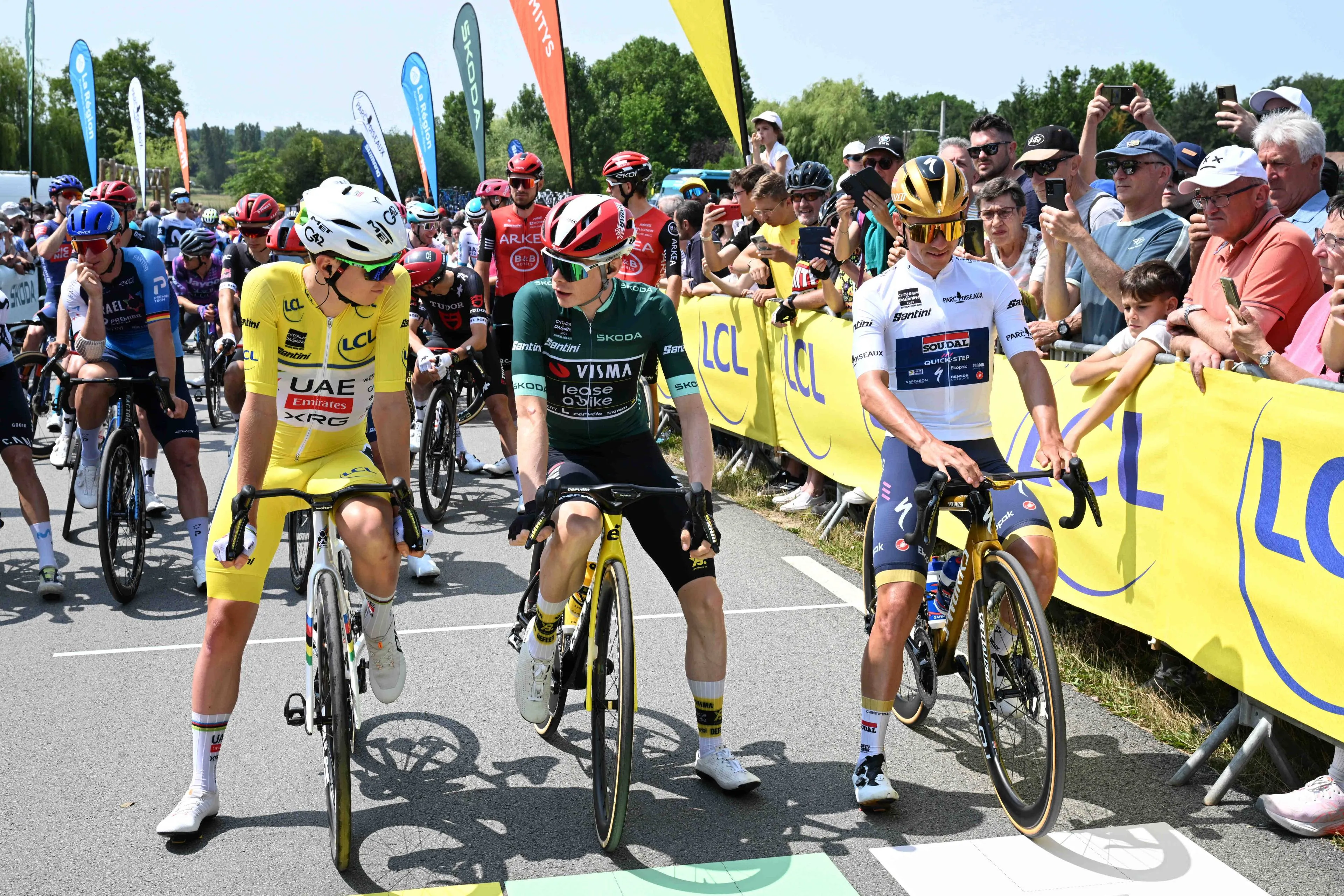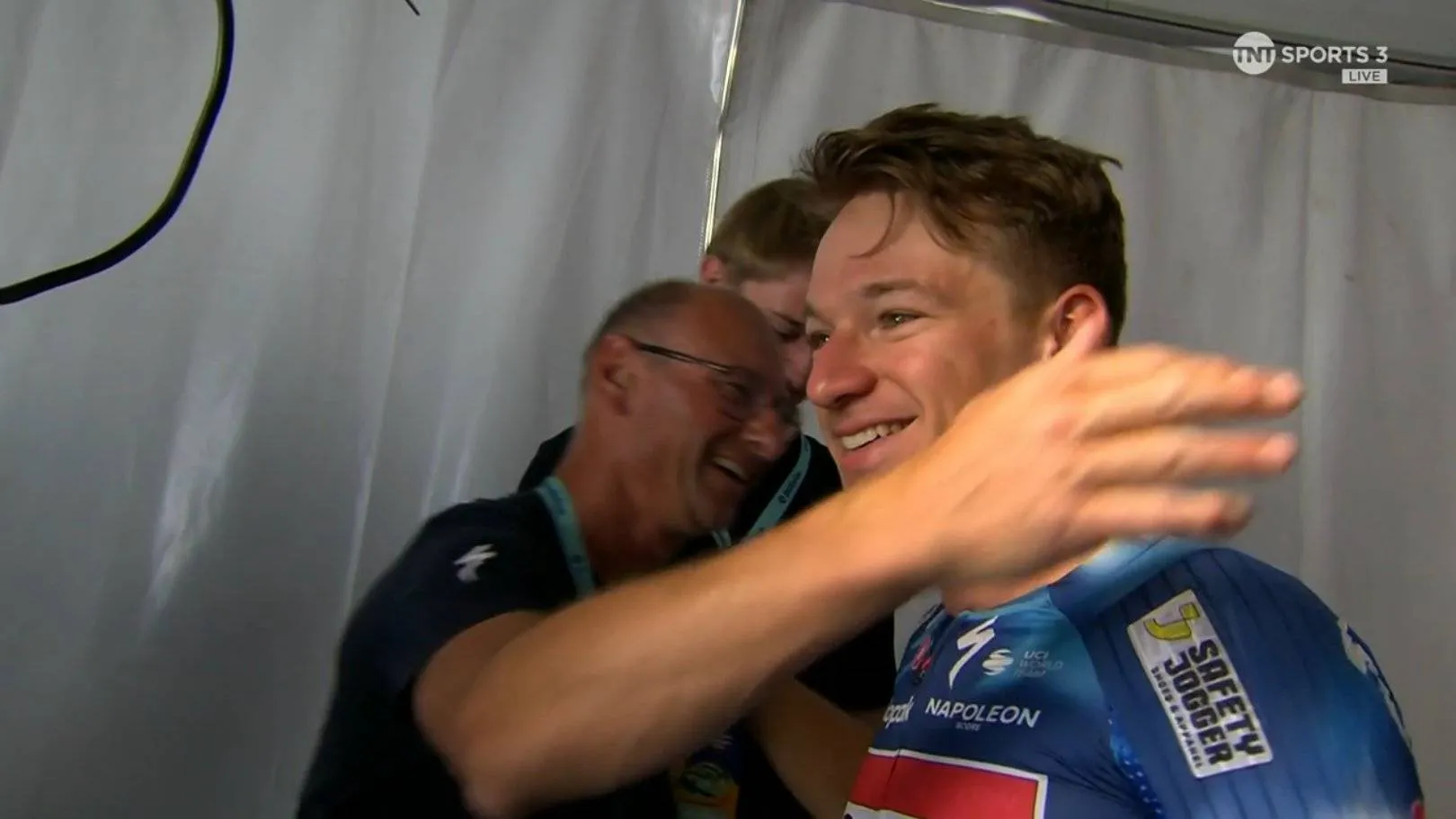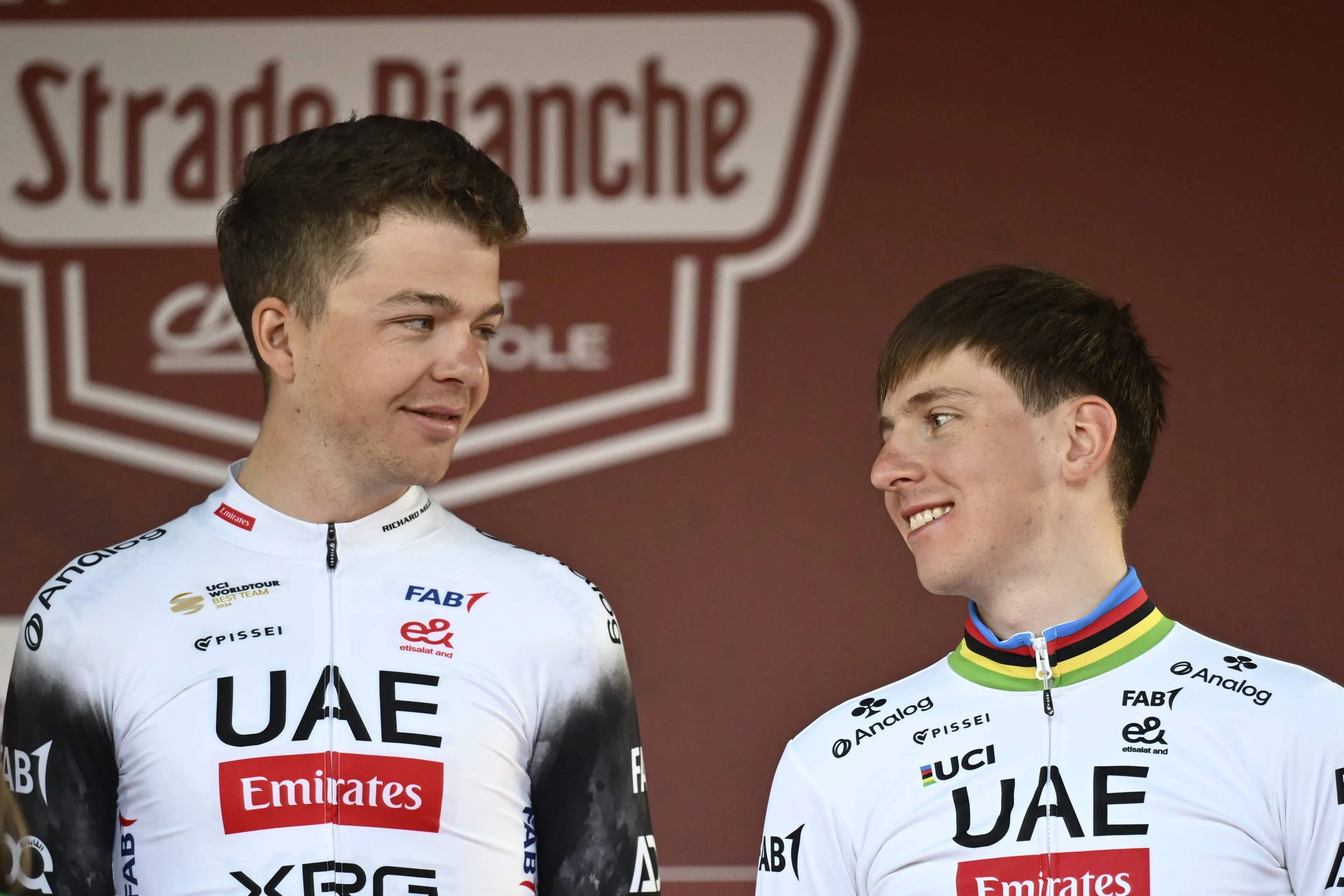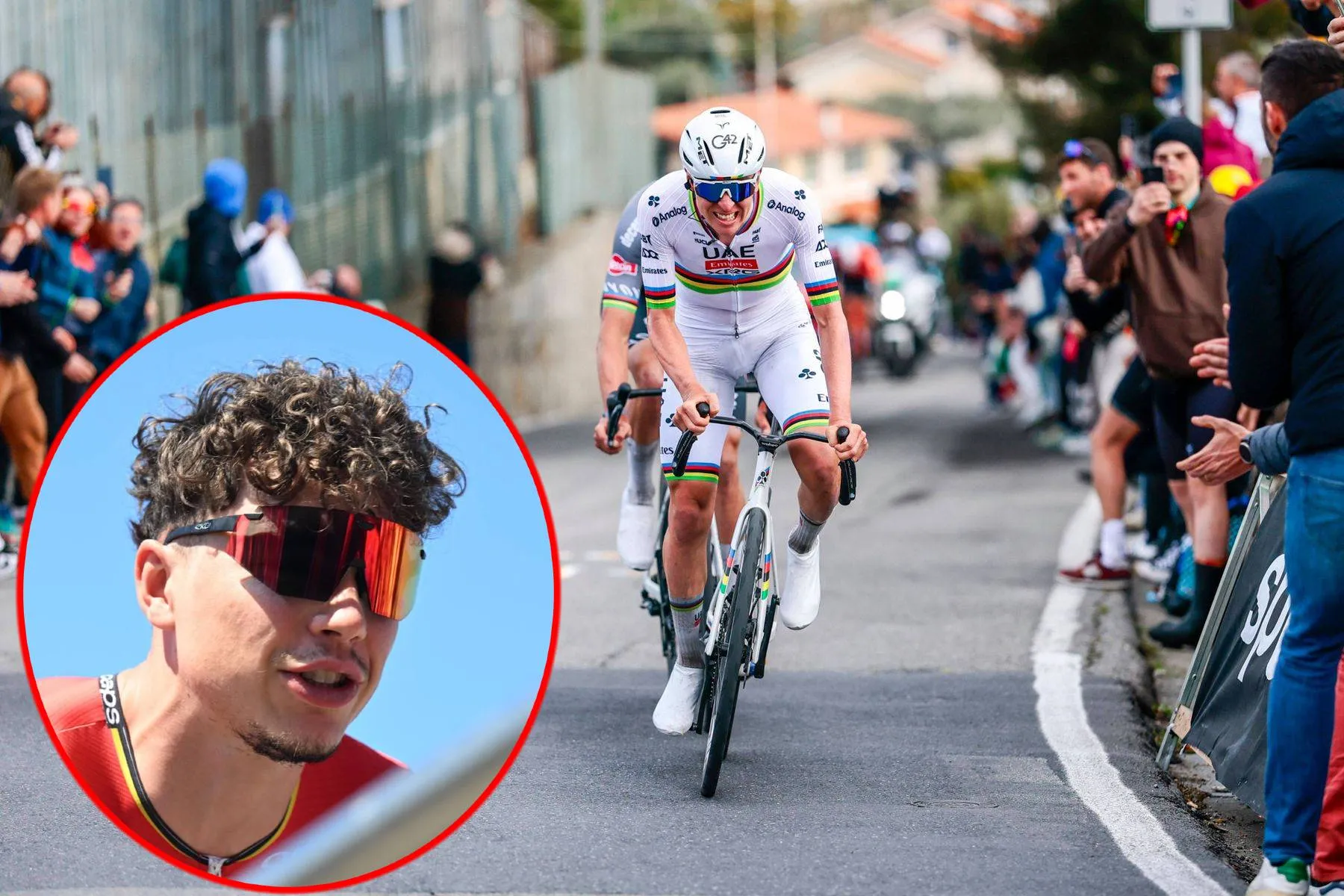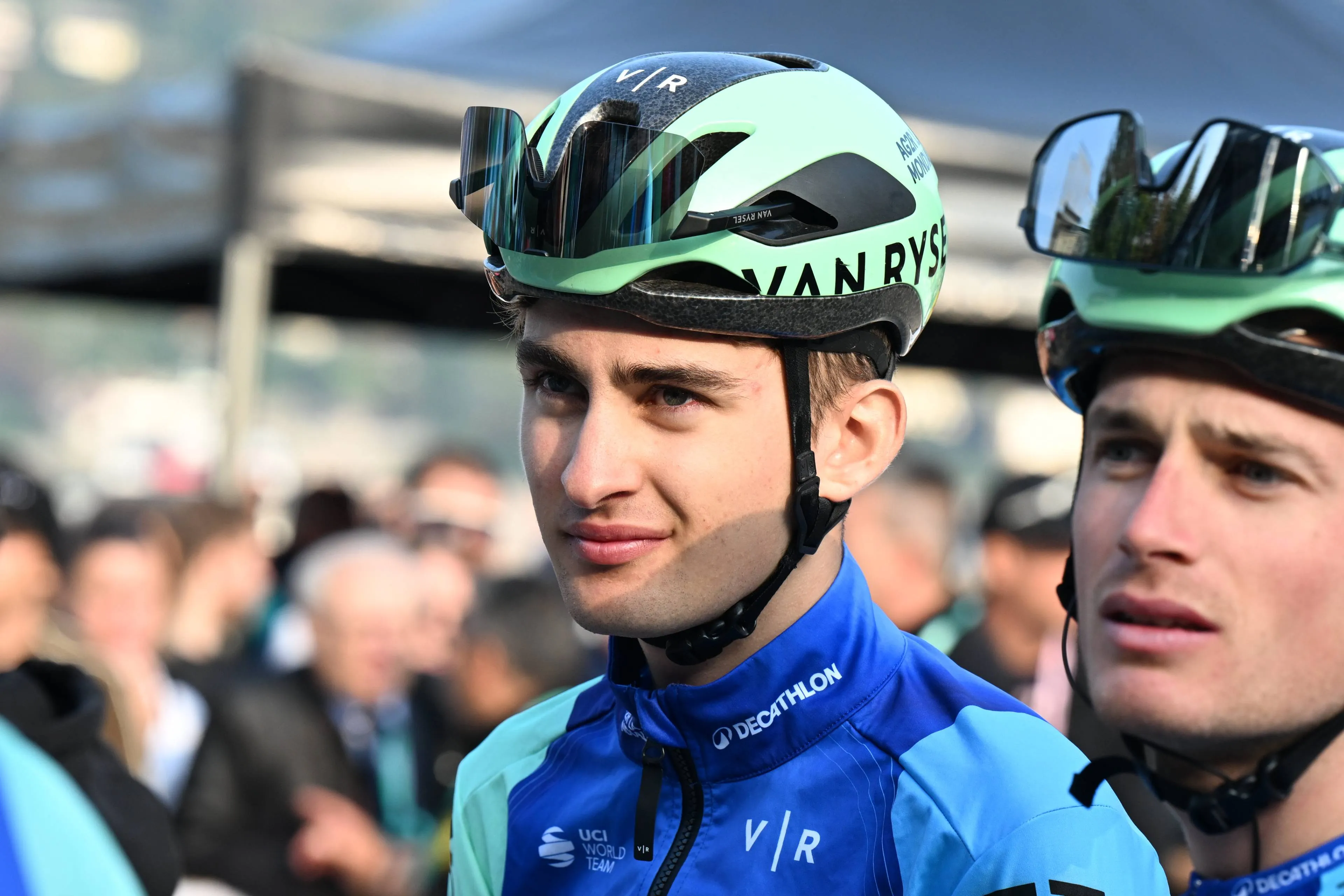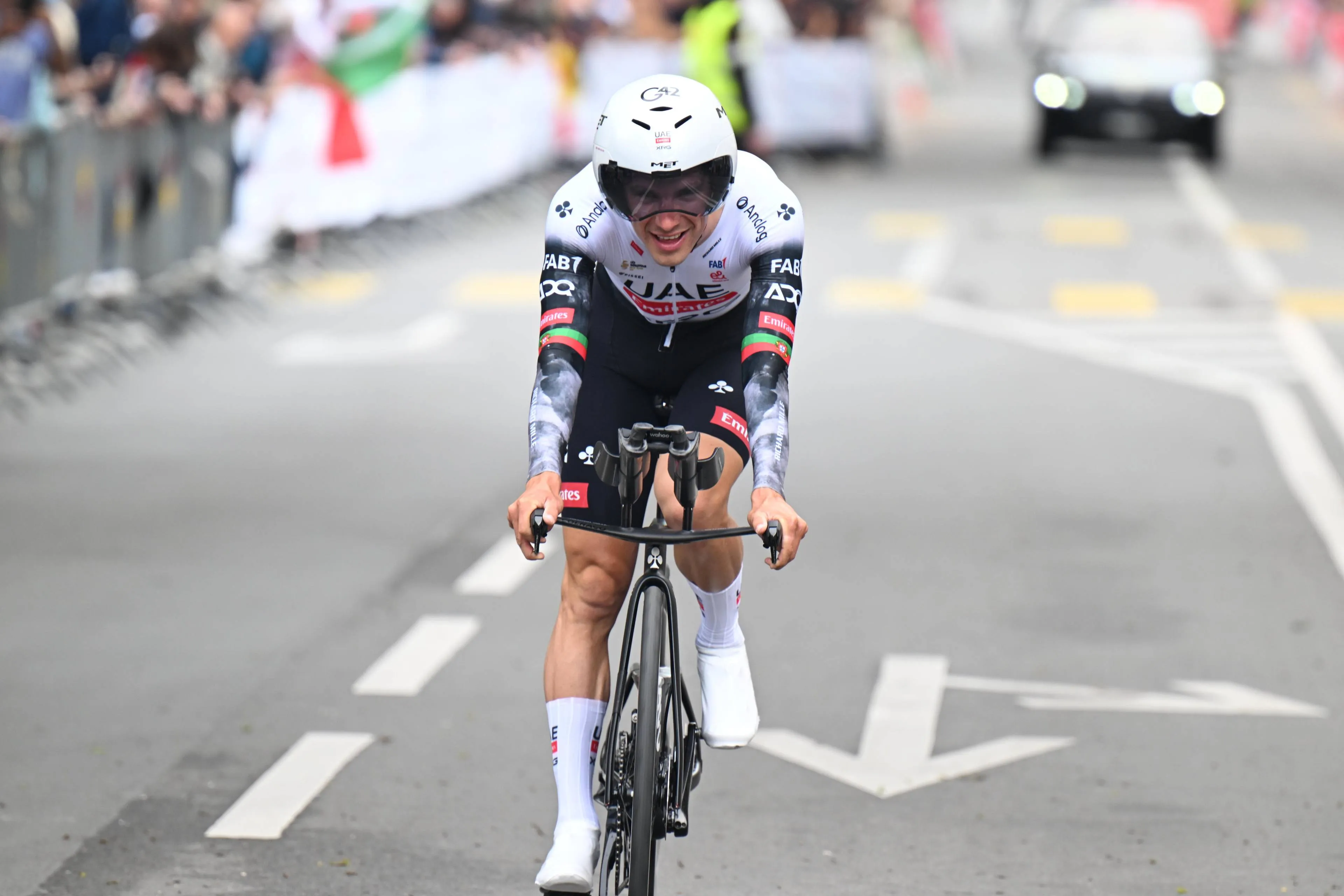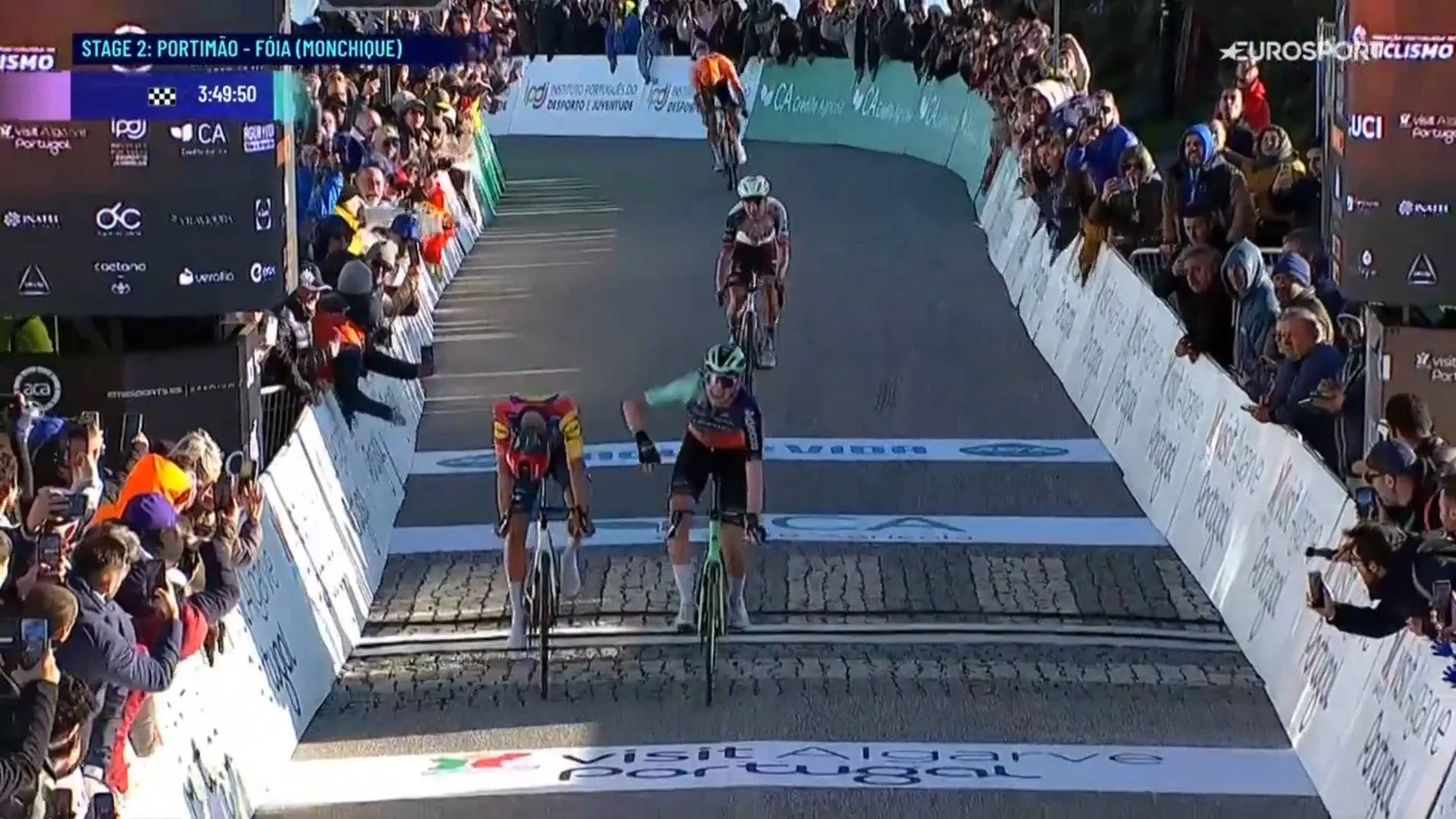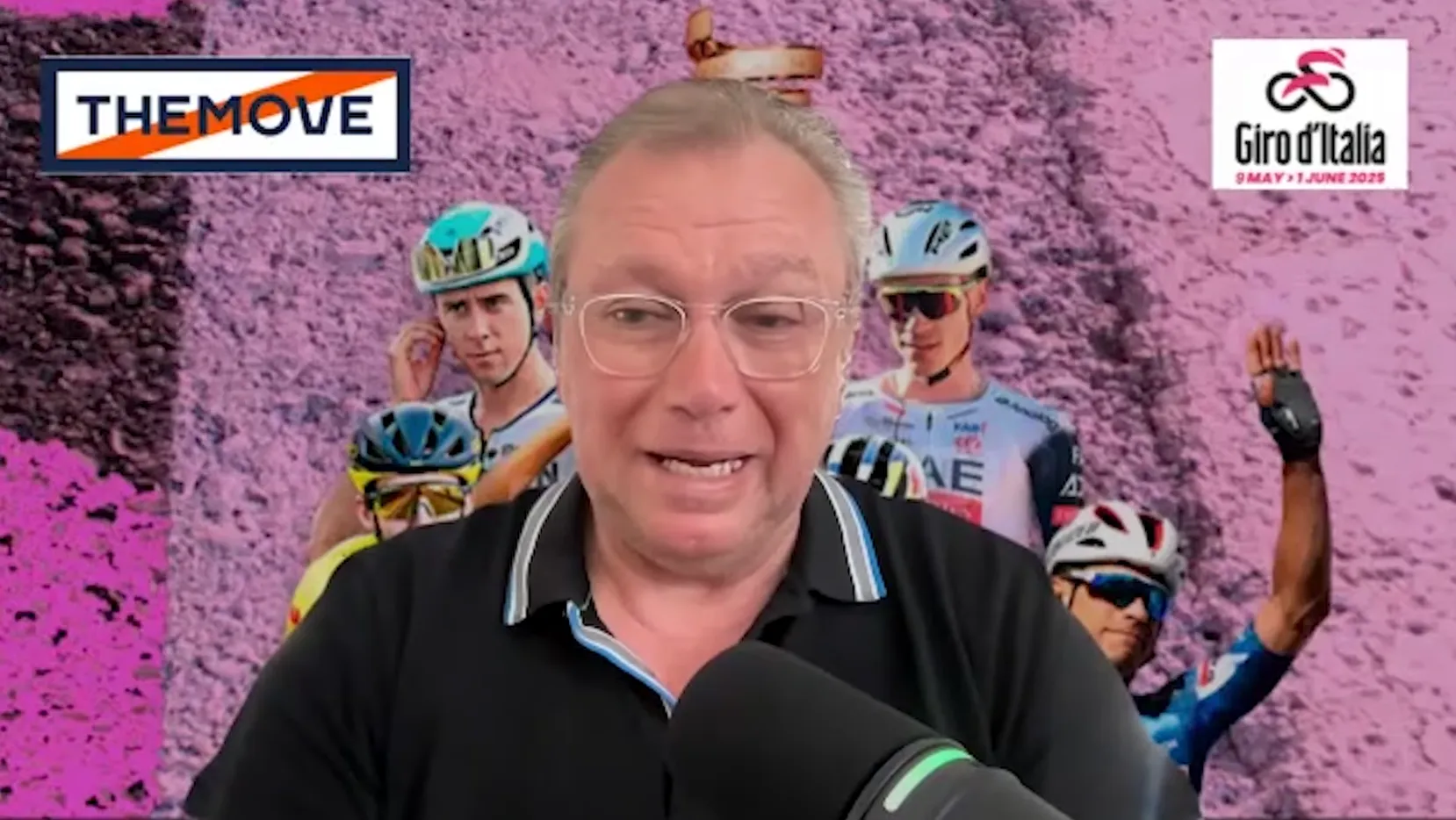
Johan Bruyneel and Spencer Martin, in their latest episode
of The Move, offered sharp analysis of the 2025 Tour de Suisse’s GC
battle and the latest regulatory controversies surrounding the UCI. Their
discussion centred on Joao Almeida’s stage racing credibility, Kevin
Vauquelin’s emergence, and what Bruyneel called “astonishing” decisions by the
UCI.
With just two stages remaining in the Tour de Suisse, Joao
Almeida appeared poised to seal a significant win. “He’s the best rider there
and he's also in amazing shape,” Bruyneel said, praising the UAE Team Emirates-
XRG rider’s aggression and endurance across multiple stages. Almeida was third
overall, 39 seconds behind leader Kevin Vauquelin, but with an uphill finish
and mountain time trial ahead, he remained the strong favourite.
Read also
Without UAE’s mishap on stage 1, it is pretty safe to say
that Almeida would have won this race at a canter. This is especially good news
for Tadej Pogacar at the Tour next month.
Bruyneel singled out Almeida’s victory on Stage 4 as a
defining performance, “That was quite the performance… attacking probably 3k
from the top and then keeping that gap until the finish with 40k to go or
something.” Martin added that Almeida’s ability to put “the hurt on the whole
peloton” underscored why he’s one of the sport’s top stage racers.
However, Bruyneel speculated that Almeida could have gained
even more time by tactically letting a small group rejoin him in Stage 5, “Why
don’t you just lose another 10 seconds, get with these three guys… and the gap
would have been a lot bigger.”
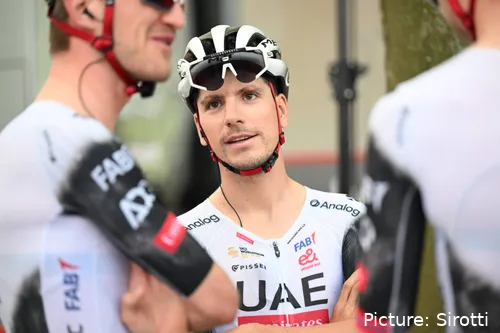
Almeida looks set to play a pivotal role at the Tour de France
One of the surprises of the race has been Vauquelin’s rise
into yellow. The Frenchman, riding for Arkéa – B&B Hotels, benefited from
the Stage 1 breakaway and has shown consistency uphill and against the clock.
Bruyneel offered high praise, “I think very highly of Vauquelin… he goes really
well uphill, he can time trial well. He may hang on. He’s going to be podium
for sure.”
Martin questioned how long Vauquelin could hold off
Almeida’s charge, noting that the Stage 7 finish (4km at 8%) should allow
Almeida to claw back at least 15–20 seconds. With the final stage a 9km climb
at 8–10%, Bruyneel concluded: “Almeida will have to have a good day… and then
he will win the Tour of Switzerland, but not by much.”
Read also
The hosts turned their attention to INEOS Grenadiers,
following rumours Kevin Vauquelin is set to join the team. Bruyneel was blunt,
“They have five to seven riders who are kind of institutions within the team
that nobody touches… and it doesn’t really matter anymore if they have results
or not.” He pointed out that while Ineos has depth, it lacks a clear leader who
can win a Grand Tour.
Martin questioned whether the team’s structure was holding
back younger talent, saying Ineos “have certain riders that are like planets
and everything rotates around them.” Bruyneel argued the team needed to regain
hunger: “They’re house dogs now… they used to be hungry.”
One proposed solution? Ineos must build a dedicated U23
development team, rather than relying on external feeder squads. “If you want
to have access to huge talent so young, you have to have a place where you can
accommodate them,” Bruyneel said.
Read also
The pair were scathing in their criticism of the UCI’s
proposed trial of gear restrictions in August. Intended to limit the maximum
distance covered per pedal stroke to around 10.4 metres, the rule complicates
compatibility with existing equipment, particularly SRAM drivetrains.
Bruyneel called it “astonishing” that such a decision was
made without consulting industry players: “I cannot believe… the UCI comes with
this thing, teams with SRAM have a huge problem.” He warned that equipment
manufacturers were being put at risk, noting, “One person I know is going to go
bankrupt because he's invested so much into a state-of-the-art handlebar.”
Beyond gearing, the duo also criticised the UCI’s blanket
approach to handlebar width limits, especially for smaller riders and women.
“If you’re used to riding 38mm bars, you behave differently in the bunch. Now
all of a sudden, you're on 40s and you think you can pass, but you can’t,”
Bruyneel said. “You can't have one rule for every single rider.”
Read also
They traced many of the safety-driven reforms to pressure
from ASO’s Christian Prudhomme and FDJ’s Marc Madiot. Bruyneel called it a
“French triangle,” claiming the group had an outsized influence on current
safety policy: “All of these recommendations, they say they come from SafeR,
but it’s Predhomme, Madiot, and Lappartient.”
The most emotional moment came when Bruyneel and Martin
reflected on Quinn Simmons’ solo win on Stage 2, a day after the two year anniversary
of Gino Mäder’s death. Simmons had been involved in the fatal crash and openly
dedicated his victory to Mäder and his family. “That was an unbelievable
performance,” Bruyneel said. “He did 430 watts for 36 minutes… almost 6 watts
per kilo. That’s crazy.”
Read also
Martin added that Simmons showed not just physical strength
but mental resolve too, “He kept looking like he was going to get reeled in,
and they were racing all out behind him.”
Finally, the conversation turned back to safety: “We need to
slow the riders down,” Martin said at one point, “but it’s not that simple.”
And Bruyneel, shaking his head at UCI policymaking, put it even more plainly:
“Whatever we say doesn’t matter. They don’t care.”
claps 1visitors 1
Just in
Popular news
Latest comments
- Yes, the guy is no fluke. Even if he fails to improve over the next 15 years he’ll do damage. That young blood is going to keep the establishment working hard.Mistermaumau19-02-2026
- This excuse is harmless, just quaint and amusing. The excuse I really disliked was when he accused a mechanic of improperly adjusting his saddle, endangering the mechanic's job: blaming others for your own limitations is a serious matter.
 maria2024202419-02-2026
maria2024202419-02-2026 - ok so this is impressive - I trashed this guy all winter, get a pro win before the anointing. against a quality field. And Onley and Riccitello look good too. fun to see young blood.mij19-02-2026
- Minor flaws.... thats like suggesting Genghis Khan was a bit aggressive with other countriesslappers6619-02-2026
- Then you carry on if that's what makes you happyslappers6619-02-2026
- Fabio cannot catch a break.mij19-02-2026
- OK, today is the "air conditioner"... yesterday was a cramp... on saturday a bee will sting him in his tongue... his tongue will swell up and mustafa gets no oxygen. Because of his swollen tongue, Remco won't be able to give us a new excuse. Remco and the spanish rat Ayuso should be on the same team. They both have a ton of excuses and both of them are liars. Ad acta.Mou-Cro-HR19-02-2026
- Florian Lipowitz is secretly happy
 Rafionain-Glas19-02-2026
Rafionain-Glas19-02-2026 - The crucial thing to remember is that Remco was broken by the pace of Gall and Tiberi, not Del Toro's. Remco's excessive antics are because he doesn't want anyone to think that he's 'genuinely' struggling. You can always say 'he got cramps' because 'his preparation didn't go to plan', but the thing is that there is a limit to the number of excuses and exceptions that there can be. Eventually everyone just accepts that he's reached his ceiling on the climbs.
 Rafionain-Glas19-02-2026
Rafionain-Glas19-02-2026 - Bahraini suspicious..Santiago19-02-2026
Loading
Write a comment


